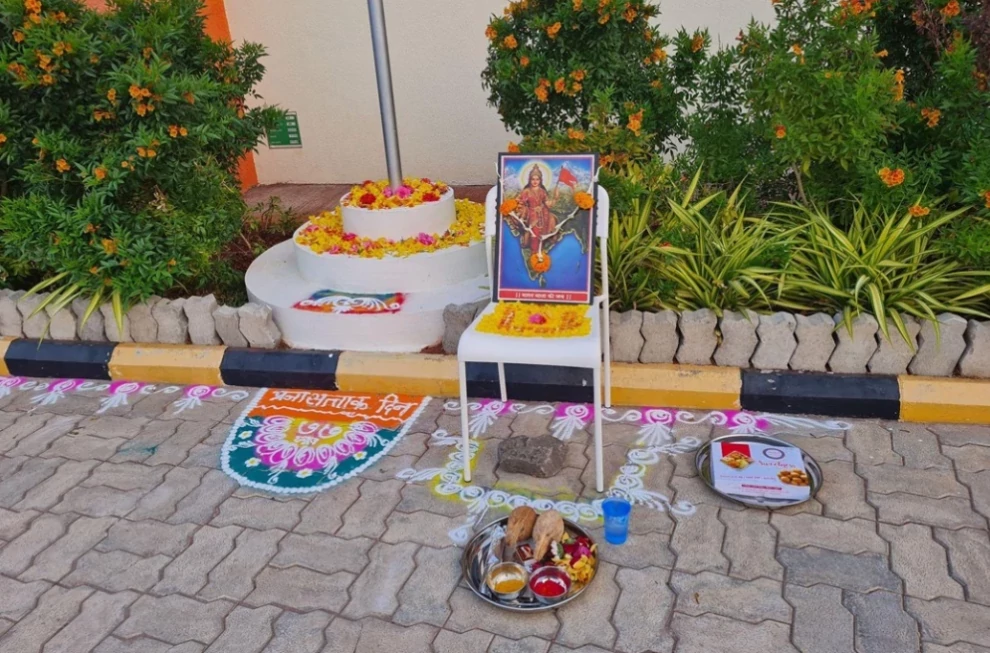EKA Global: "Longevity Packaging" is the Key to Halving Thailand’s Food Waste by 50% by 2023
27 October 2025
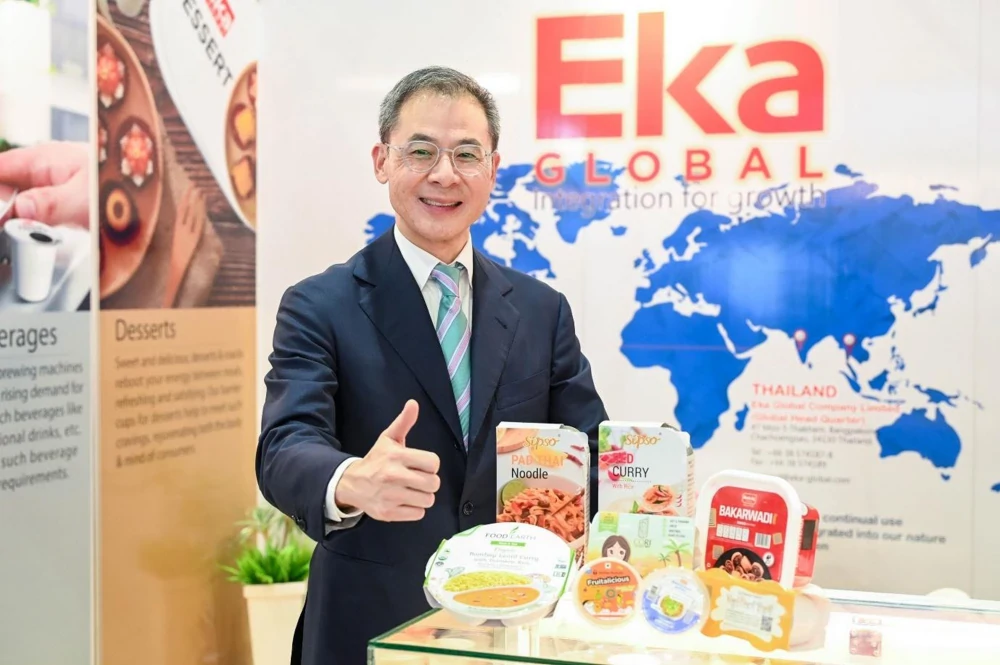
EKA Global advocates for the business sector to use Longevity Packaging technology to solve food waste problems at the source. The company stresses that this is a vital tool for helping Thailand achieve its sustainable development goals, especially as global trends support continuous double-digit growth for the shelf-life extension packaging market.
Mr. Chaiwat Nantiruj, CEO of EKA Global Co., Ltd. (EKA GLOBAL), a leader in food longevity packaging innovation, revealed that the "Food Waste" situation in Thailand remains a pressing issue. According to the latest data from 2025, domestic food waste volume stands at a staggering 10 million tons per year, accounting for 36–39% of all municipal solid waste. On average, Thais generate 154 kilograms of food waste per person annually, an rate significantly higher than the global average.
Thailand has declared this year as the “Year of Initiating the Food Waste Reduction Campaign” and is pushing the “Thailand Driving Plan towards the Zero Food Waste Goal.” The aim is to reduce the volume of food waste by 50% by 2030, in line with the United Nations’ Sustainable Development Goals (SDGs).
Mr. Chaiwat stated that sustainable food waste reduction must begin with “preventing waste from occurring in the first place,” rather than just managing it at the endpoint. The private sector must play a crucial role by adopting Longevity Packaging technologies (such as Modified Atmosphere Packaging - MAP).
This technology delivers concrete positive results: it not only helps reduce Food Loss but also significantly extends the freshness and shelf life of food and raw materials—from storage and transportation right up to the retail shelf. This effectively prevents spoilage before the product reaches the consumer.
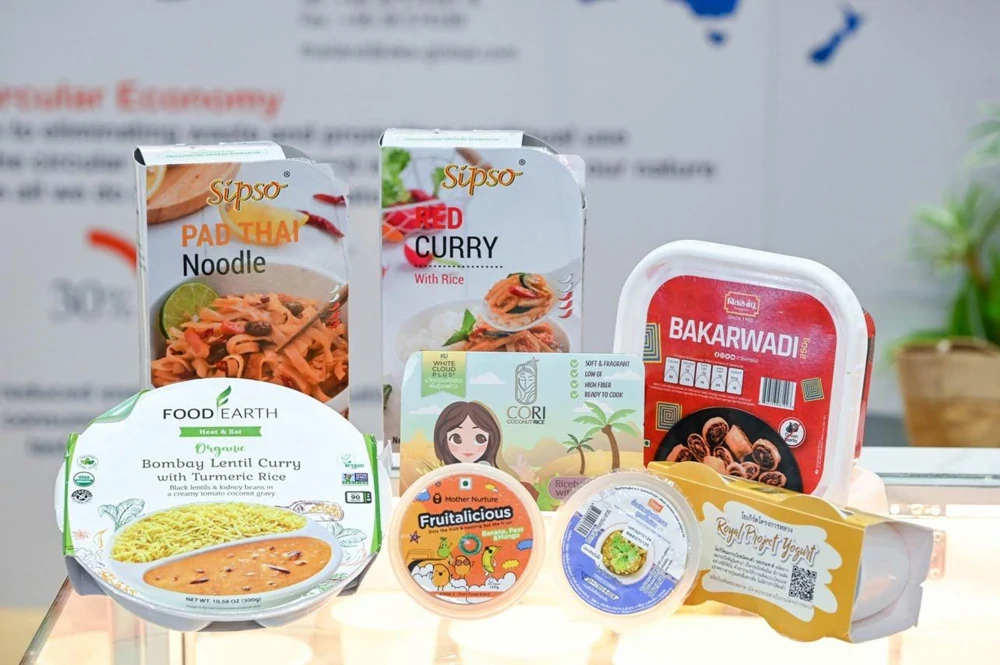
Furthermore, longevity packaging helps maintain quality and Food Safety, preserving nutritional value, flavor, and texture, while preventing contamination. Reducing raw material spoilage by even just 1–2% can save hundreds of billions of baht annually in costs and economic damage across the food industry.
The global outlook for the longevity packaging market remains bright and is seeing robust, continuous growth, averaging around 5–10% per year. This trend aligns with the megatrends of sustainability and the increasing worldwide consumption of Ready-to-Eat (RTE) meals.
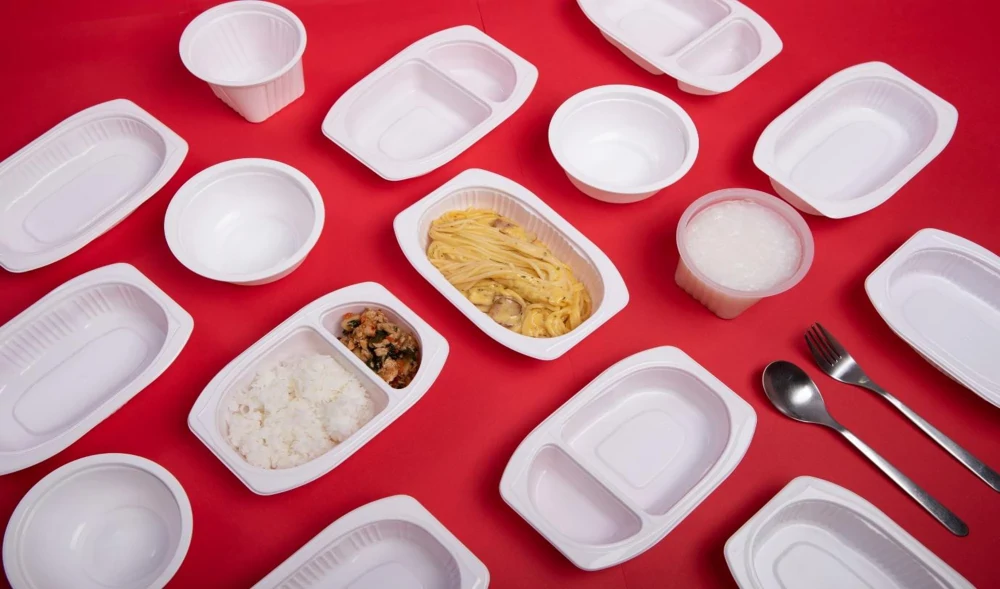
The export outlook for Thai RTE food, a key segment for longevity packaging, is also expected to grow faster than the global trade average. Various institutions forecast that the total value of Thai food exports this year will exceed 1.75 trillion baht, an increase of 6.8%. Krungsri Research projects that the volume of RTE food exports in 2025–2026 will expand by an average of 5–6% per year, driven by urbanization, fast-paced lifestyles, and the demand for high-quality, long-shelf-life food.
“Investing in food shelf-life extension packaging technology is an investment that yields sustainable social and environmental benefits. It is a critical mechanism for solving the food waste problem at the source and will help Thailand concretely achieve its food waste reduction goals,” Mr. Chaiwat concluded.
เอกา โกลบอล ชี้ “บรรจุภัณฑ์ยืดอายุอาหาร” ทางออกลดขยะอาหารหนุนไทยบรรลุเป้าหมายลด 50%

“เอกา โกลบอล” หนุนไทยลดปริมาณ “ขยะอาหาร” ลง 50% ในปี 2573 แนะภาคธุรกิจใช้เทคโนโลยีบรรจุภัณฑ์ยืดอายุอาหาร (Longevity Packaging) แก้ปัญหาตั้งแต่ต้นทาง มั่นใจเป็นเครื่องมือสำคัญช่วยไทยบรรลุเป้า เผยเทรนด์โลกหนุนตลาดบรรจุภัณฑ์ยืดอายุเติบโตต่อเนื่องเป็นตัวเลขสองหลัก
นายชัยวัฒน์ นันทิรุจ ประธานเจ้าหน้าที่บริหาร บริษัท เอกา โกลบอล จำกัด (EKA GLOBAL) ผู้นำตลาดนวัตกรรมบรรจุภัณฑ์ยืดอายุอาหาร (Longevity Packaging) แบรนด์คนไทยเบอร์ใหญ่อันดับต้น ๆ ของโลก เปิดเผยว่า สถานการณ์ “ขยะอาหาร” (Food Waste) ในประเทศไทยยังคงเป็นประเด็นเร่งด่วน โดยข้อมูลล่าสุดจากกรมควบคุมมลพิษ (คพ.) ณ ปี 2568 พบว่า ขยะอาหารในประเทศมีปริมาณสูงถึง 10 ล้านตันต่อปี คิดเป็นสัดส่วน 36 – 39% ของขยะชุมชนทั้งหมด และคนไทยสร้างขยะอาหารเฉลี่ยสูงถึง 154 กิโลกรัมต่อคนต่อปี ซึ่งเป็นอัตราที่สูงกว่าค่าเฉลี่ยโลก
ทั้งนี้ ประเทศไทยได้ผลักดัน “แผนขับเคลื่อนประเทศไทยสู่เป้าหมาย Zero Food Waste” พร้อมประกาศให้ปีนี้ เป็น “ปีแห่งการเริ่มต้นรณรงค์ลดขยะอาหาร” เพื่อมุ่งลดปริมาณขยะอาหารลง 50% ภายในปี 2573 ตามเป้าหมายการพัฒนาที่ยั่งยืนขององค์การสหประชาชาติ
นายชัยวัฒน์ กล่าวว่า การแก้ปัญหาขยะอาหารอย่างยั่งยืนควรเริ่มที่ “การป้องกันไม่ให้เกิดขยะตั้งแต่แรก” มากกว่าการจัดการที่ปลายทาง โดยภาคเอกชนต้องเข้ามามีบทบาทสำคัญในการประยุกต์ใช้เทคโนโลยีบรรจุภัณฑ์ยืดอายุอาหาร (Longevity Packaging) โดยเทคโนโลยีบรรจุภัณฑ์ยืดอายุอาหาร เช่น Modified Atmosphere Packaging (MAP) ให้ผลบวกอย่างเป็นรูปธรรม ทั้งช่วยลดการสูญเสียอาหาร (Food Loss) และช่วยยืดอายุความสดใหม่ของอาหารและวัตถุดิบอย่างมีนัยสำคัญ ตั้งแต่การจัดเก็บ การขนส่ง จนถึงชั้นวางขาย ซึ่งเป็นการป้องกันการเน่าเสียก่อนถึงมือผู้บริโภค

นอกจากนี้ยังรักษาคุณภาพและความปลอดภัย (Food Safety) ช่วยคงคุณค่าทางโภชนาการ รสชาติ และเนื้อสัมผัส รวมถึงป้องกันการปนเปื้อน ตลอดจนถึงการลดการเน่าเสียของวัตถุดิบแม้เพียง 1 – 2% สามารถช่วยประหยัดต้นทุนและลดความเสียหายทางเศรษฐกิจในภาคอุตสาหกรรมอาหารได้หลายแสนล้านบาทต่อปี
สำหรับภาพรวมตลาดบรรจุภัณฑ์ยืดอายุอาหาร มองทิศทางการเติบโตยังคงสดใส สอดคล้องกับเมกะเทรนด์ด้านความยั่งยืนและการบริโภคอาหารพร้อมรับประทานที่เพิ่มขึ้นทั่วโลก โดยมองตัวเลขการเติบโตของตลาดนวัตกรรมบรรจุภัณฑ์อาหาร

ในภูมิภาคนี้จะยังคงมีการเติบโตที่แข็งแกร่งอย่างต่อเนื่อง โดยมีอัตราการเติบโตเฉลี่ยอยู่ที่ประมาณ 5 – 10% ต่อปี โดยเฉพาะในกลุ่มอาหารพร้อมรับประทาน (Ready-to-Eat) ซึ่งเป็นตลาดสำคัญของบรรจุภัณฑ์ยืดอายุอาหาร
ขณะที่ ประมาณการณ์แนวโน้มการส่งออกอาหารพร้อมรับประทานของไทยยังเป็นตลาดที่คาดว่าจะเติบโตด้วยอัตราที่สูงกว่าการค้าโลกโดยเฉลี่ย ข้อมูลโดยสภาหอการค้าไทย สภาอุตสาหกรรมฯ และสถาบันอาหาร มองมูลค่าการส่งออกสินค้าอาหารไทยโดยรวมในปีนี้จะเติบโตกว่า 1.75 ล้านล้านบาท เพิ่มขึ้น 6.8%
ด้านศูนย์วิจัยกรุงศรี คาดการณ์การเติบโตของปริมาณส่งออกอาหารพร้อมรับประทานปี 2568 – 2569 จะขยายตัวเฉลี่ย 5 – 6% ต่อปี มีแรงหนุนจากพฤติกรรมผู้บริโภค ไม่ว่าจะเป็นการขยายตัวของสังคมเมือง วิถีชีวิตที่เร่งรีบ และการให้ความสำคัญกับอาหารที่มีคุณภาพ สะอาด และมีอายุการเก็บรักษานาน ทำให้ความต้องการอาหารพร้อมรับประทานที่ใช้บรรจุภัณฑ์ยืดอายุอาหารเพิ่มสูงขึ้นอย่างมาก อย่างไรก็ดีผู้ประกอบการต้องติดตามความเสี่ยงด้านเศรษฐกิจและนโยบายภาษีระหว่างประเทศอย่างใกล้ชิด
“การลงทุนในเทคโนโลยีบรรจุภัณฑ์ช่วยยืดอายุอาหารจึงเป็นการลงทุนที่สร้างผลบวกต่อสังคมและสิ่งแวดล้อมอย่างยั่งยืน เพราะช่วยแก้ปัญหาขยะอาหารได้ตั้งแต่ต้นทาง และยังช่วยให้ประเทศไทยสามารถบรรลุเป้าหมายการลดขยะอาหารได้อย่างเป็นรูปธรรม” นายชัยวัฒน์ กล่าว
Latest News
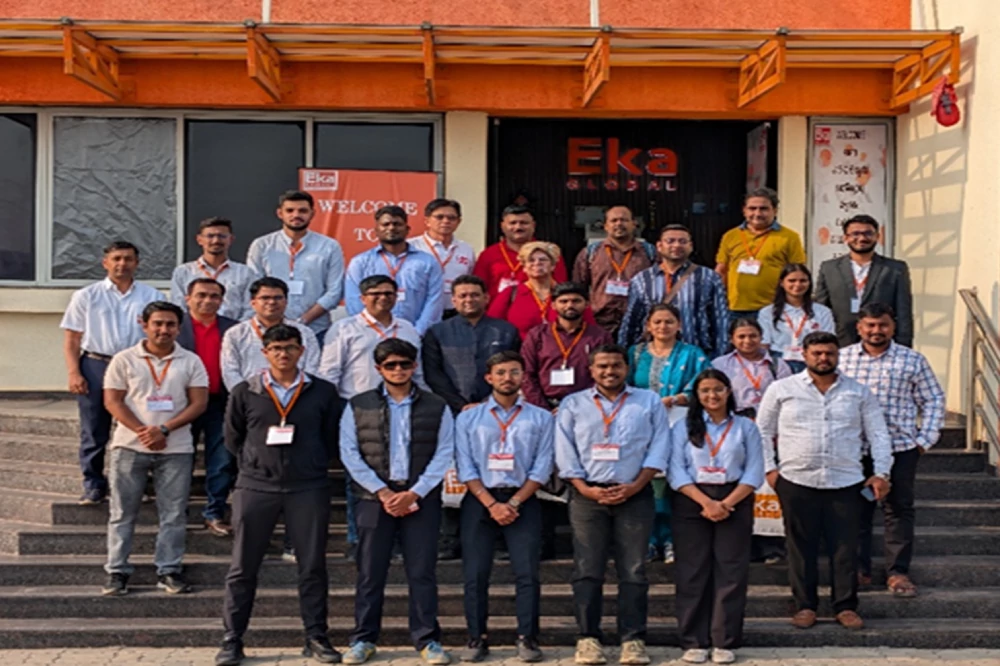
Eka Global India Hosts Successful Open House for Key Partners. Highlights from Our First Open House of the Year 2026!
Read more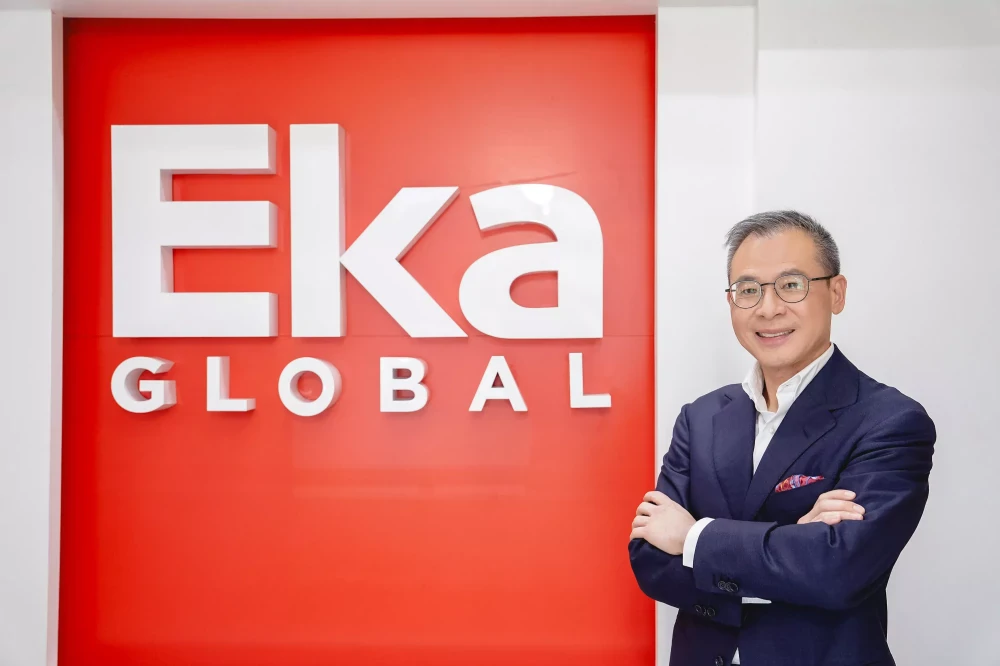
"Eka Global" Lays Out Strategy to Cope with Economic Volatility in '26, Pours Over 100 Million Baht into Expansion
Read more